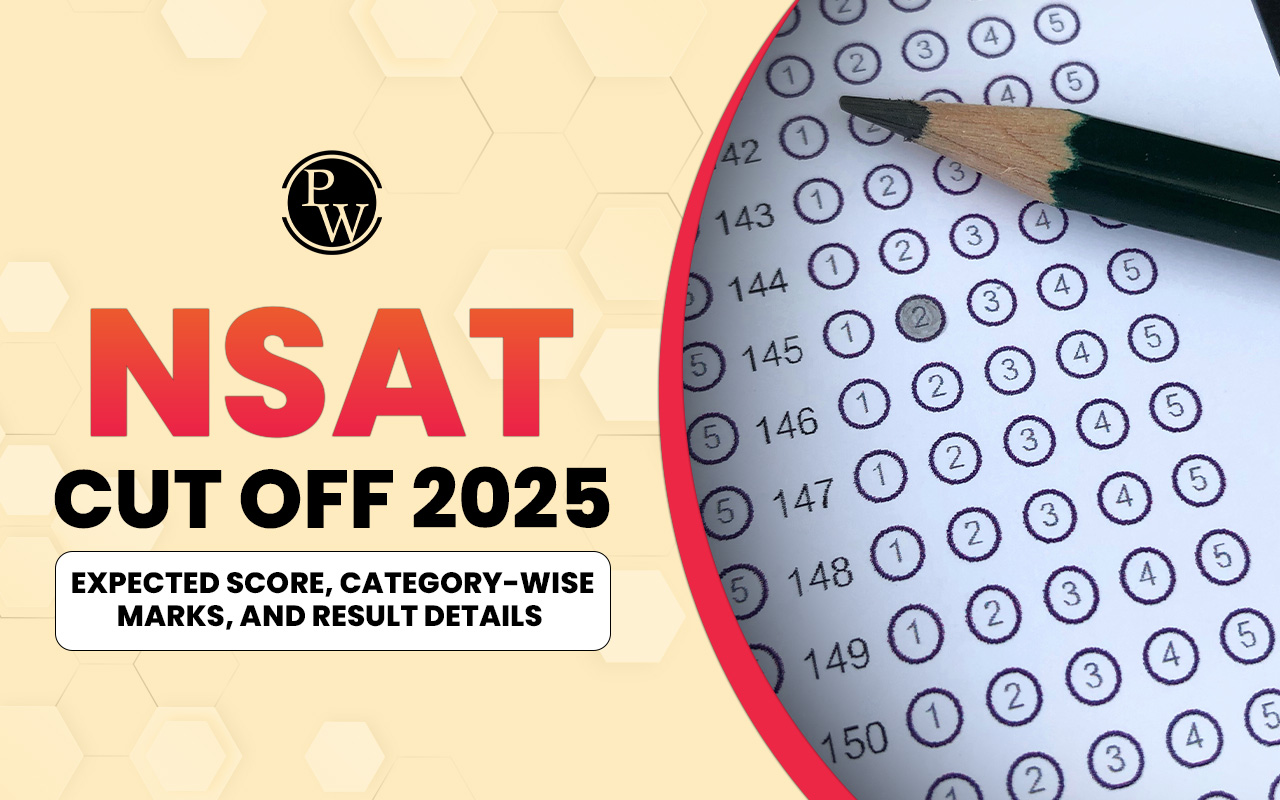
NEET UG vs JEE Main : When you finish your 10th-grade exams, you often face a big decision: should you choose Engineering or Medicine for your further studies? You might wonder, 'Is JEE Main better or NEET?' Both of these are national-level entrance exams that open doors to the fields of science.
If you do well on the NEET exam, you can get into top medical colleges, while a good score on the IIT JEE exams can lead to admission to prestigious engineering colleges. JEE and NEET are among India's most famous exams for undergraduate programs and play a crucial role in higher education.
But deciding which of these two exams is easier to crack can be challenging. Both JEE and NEET are considered tough because thousands of students from across the country take them to enter their preferred colleges.
In the following sections, we will dive into the details and figure out which of these exams is relatively more challenging to pass. Let's explore.
NEET UG vs JEE Main Overview
NEET UG and JEE Main are essential entrance exams in India, each leading to different career paths. Let's explore an overview of these exams. NEET UG is the gateway to pursuing undergraduate medical programs in India, including MBBS and BDS. You should have completed your 10+2 or equivalent with Physics, Chemistry, Biology, and English to qualify for NEET UG.
The minimum age requirement is 17 years. NEET UG focuses on subjects like Biology, Chemistry, and Physics, primarily related to medical sciences.
It consists of multiple-choice questions and covers topics such as Botany, Zoology, Inorganic Chemistry, Organic Chemistry, and Physics. It's a pen-and-paper exam. NEET UG is considered challenging due to intense competition for limited medical college seats. Qualifying NEET UG allows you to pursue a medical career as a doctor, dentist, or related field.
JEE Main is the key to entering undergraduate engineering programs in India. You should have passed your 10+2 or equivalent with Physics, Chemistry, and Mathematics to qualify for JEE Main. There are no specific age restrictions.
JEE Main focuses on Physics, Chemistry, and Mathematics, primarily related to engineering and technology.
It includes multiple-choice questions and covers topics like Mathematics, Chemistry, and Physics. The exam can be taken online or on paper. JEE Main is also challenging due to the high competition for seats in prestigious engineering colleges. A successful JEE Main result opens doors to engineering programs, which can lead to careers in various engineering disciplines.
What is the NEET UG Exam?
The National Eligibility cum Entrance Test for Undergraduate courses, commonly known as NEET UG, is a national-level entrance examination in India. NEET UG is conducted by the National Testing Agency (NTA) and is a crucial examination for students aspiring to pursue undergraduate medical and dental programs in the country.
Here's a brief overview of NEET UG:
- Purpose: NEET UG serves as the primary entrance test for admissions to undergraduate medical courses (MBBS) and dental courses (BDS) in various medical and dental colleges across India.
- Eligibility: To be eligible for NEET UG, candidates must have completed their 10+2 (or equivalent) with Physics, Chemistry, Biology (Botany and Zoology), and English. Additionally, there are age limits, with candidates needing to be at least 17.
- Syllabus: The NEET UG syllabus primarily covers subjects related to medical sciences. It includes topics in Physics, Chemistry, and Biology and focuses on aspects relevant to the medical and dental fields.
- Exam Pattern: NEET UG is a pen-and-paper exam that consists of multiple-choice questions (MCQs). It assesses candidates' knowledge in Botany, Zoology, Inorganic Chemistry, Organic Chemistry, and Physics.
- Frequency: NEET UG is typically held once a year.
- Scoring and Rank: Students who perform well in NEET UG have the opportunity to secure admissions to prestigious medical and dental colleges. Admissions are based on merit, and the NEET UG score is critical to determining eligibility.
- Competition: NEET UG is known for its competitiveness, as many students across the country aspire to become doctors or dentists. The exam's difficulty level reflects this high level of competition.
NEET UG is a significant milestone for students who wish to pursue a career in the medical or dental field in India. It standardizes the admissions process, ensuring a fair and merit-based selection of candidates for these highly sought-after courses.
What is the JEE Main Exam?
To apply for the JEE Mains exam , candidates must have completed their 12th-grade education with Physics, Chemistry, and Mathematics as their subjects. General and OBC candidates must attain a minimum of 75% marks in their 12th-grade exams. In comparison, SC/ST candidates should have a minimum of 65% marks in their 12th-grade or equivalent exams to be eligible for admission in NITs, IIITs, and GFTIs.
The JEE Mains exam is conducted online as a computer-based test covering engineering, architecture, and planning courses. Candidates have 180 minutes (3 hours) to solve 75 questions out of 90 for the B.Tech paper.
The National Testing Agency (NTA) will soon release the latest pattern and the JEE Main Syllabus 2026 PDF at jeemain.nta.nic.in for 2026. It's recommended to check the most recent JEE Main 2026 Exam Pattern on the official website.
The JEE syllabus is based on topics from the 11th and 12th grades outlined in the NCERT/CBSE Physics, Chemistry, and Mathematics syllabus. The 11th-grade chapters carry a weightage of 40%, while the 12th-grade chapters hold a weightage of 60% in the exam.
Due to the release of rationalized NCERT books and the reduction in the NEET Syllabus for 2026, candidates can also anticipate changes in the JEE Main Syllabus.
Also, Check - Which Is The Best Coaching Institute For IIT JEE In India?
NEET UG vs JEE Main Key Differences
Although the primary distinction between NEET and JEE lies in the chosen field of study, there are additional disparities concerning exam structure, curriculum, occurrence, qualifications, and more that candidates should familiarize themselves with before commencing their preparations. The table below underscores the key distinctions between NEET and JEE:
|
NEET UG vs JEE Main Key Differences |
||
| Particulars | NEET UG | JEE Main |
| Full Form | National Eligibility Cum Entrance Test (NEET) | Joint Entrance Examination (JEE) Main |
| Exam Conducting Body | National Testing Agency (NTA) | JEE Apex Board (JAB) on behalf of NTA |
| Exam Frequency | Once a year | Twice a year (January and April Sessions) |
| Exam Mode | Offline (Pen and Paper based) | Computer-Based Test (Pen and paper-based for Drawing section in B.Arch) |
| NEET Form Fill Up Fees | INR 1700 for GN, INR 1600 for GN-EWS and OBC, INR 1000 for SC/ ST/ PwD | Varies depending on the number of papers and the category of the candidate |
| Medium of the exam | 13 languages - Hindi, English, Urdu, Odia, Bengali, Assamese, Kannada, Malayalam, Tamil, Telugu, Gujarati, Marathi, Punjabi | 13 languages - English, Hindi, Assamese, Bengali, Gujarati, Kannada, Malayalam, Marathi, Odia, Punjabi, Tamil, Telugu, and Urdu |
| Number of Questions | 200 (180 to be attempted) | Varies depending on the paper |
| Number of Sections | 4: Physics, Chemistry, Botany, Zoology | Varies depending on the paper |
| Type of Questions | Multiple Choice (MCQs) | Multiple Choice (MCQs) and other formats |
| Marking Scheme | +4: Correct; -1: Incorrect | +4 for each correct response; -1 for each incorrect response; 0 for Unanswered questions |
| Total Marks | 720 | Varies depending on the paper |
| Exam Duration | 200 minutes (3 hours and 20 minutes) | 3 hours (3.5 hours for both – B.Arch and B. Planning) |
| Official Website | neet.nta.nic.in | jeemain.nta.nic.in |
| NTA Helpline | Numbers: 011-69227700, 011-40759000 | 0120-6895200 |
NEET UG vs JEE Main Eligibility Criteria
The eligibility criteria for NEET and JEE include various factors like the candidate's age limit, educational qualifications, qualifying marks, number of attempts, and more. The following section provides a comprehensive overview of the eligibility criteria for both exams.
| NEET UG vs JEE Main Eligibility Criteria | ||
| Parameters | JEE Main Eligibility Criteria | NEET Eligibility Criteria |
| Number of Attempts | Twice a year, for 3 consecutive years | No restrictions within the specified age limit |
| Nationality | Must be an Indian citizen Foreign nationals, NRIs, OCIs, and PIOs are also eligible to apply | Must be an Indian citizen Overseas Citizens of India (OCI) are also eligible to apply |
| Educational Qualifications | Candidate should have passed 10+2 with a minimum of 75% aggregate marks (65% for Reserved category candidates) | Candidate should have passed 10+2 with a minimum of 50% aggregate marks (45% for OBC candidates; 40% for SC/ST/PWD candidates) |
| Age Limit | No age limit applicable | Minimum age criteria: 17 years No maximum age limit |
NEET UG vs JEE Main: Which Is Tougher?
Whether NEET UG or JEE Main is tougher can be subjective and depends on individual strengths and preferences. Here's a general overview of their difficulty levels:
NEET UG (National Eligibility cum Entrance Test - Undergraduate)
- NEET primarily focuses on Biology, Physics, and Chemistry.
- It is considered challenging due to the vast syllabus of Biology, including Botany and Zoology.
- Questions in NEET often involve detailed factual knowledge and application of concepts in the medical field.
- NEET requires a deep understanding of biological processes, anatomy, and medical terminology.
- The competition for NEET is exceptionally high due to limited medical seats.
JEE Main (Joint Entrance Examination - Main)
- JEE Main primarily focuses on Physics, Chemistry, and Mathematics.
- It is known for its emphasis on problem-solving, logical reasoning, and mathematical skills.
- Questions in JEE Main tend to be more conceptual and require strong mathematical and analytical thinking.
- JEE Main evaluates a student's ability to apply scientific principles to engineering problems.
- The competition for JEE Main is also intense, with numerous engineering seats available.
In summary, NEET UG is perceived as more fact-based and demanding regarding biological knowledge. At the same time, JEE Main is considered more conceptually challenging, requiring strong mathematical and analytical skills. Your aptitude, interests, and career goals determine which exam you may find tougher.
Individual study habits, the time available for preparation, and access to resources can also influence your perception of exam difficulty levels. Choosing the exam aligned with your career aspirations and strengths is essential.
Also, Check - How To Overcome NEET Exam Stress?
NEET UG vs JEE Main Tips to Crack The Exams
- Begin your preparations early: NEET-UG and JEE Main require a comprehensive understanding of subjects. Commence your preparations well in advance to have sufficient time for thorough study.
- Master the basics: Build a strong foundation by grasping the fundamentals of each subject. This will help you tackle more complex topics with ease.
- Create a study schedule: Develop a well-structured study plan that includes all subjects and allocates adequate time.
- Practice regularly: Consistent practice with sample papers and previous years' questions is vital for improving problem-solving skills and time management.
- Seek guidance: If you're facing difficulties, consider enlisting the help of a tutor or coaching institute to clarify doubts and provide structured advice.
- Maintain a healthy routine: Don't compromise on sleep and maintain a balanced diet. A healthy lifestyle can significantly impact your cognitive abilities.
- Stay stress-free: Handle exam pressure by practicing relaxation techniques, meditation, or yoga.
- Mock exams: Take numerous mock exams to familiarize yourself with the test format, improve your speed, and assess your progress.
- Self-assessment: Continually evaluate your performance and work on weak areas. Understand the exam pattern and syllabus thoroughly.
- Stay updated: Regularly check for any changes in exam patterns or syllabus and make the necessary adjustments in your preparation strategy.
- Group study : Collaborate with friends to study together and discuss complex topics. Group studies can be beneficial.
- Revision: Consistent revision is vital to retaining knowledge. Make sure to revise all the subjects in the days leading up to the exams.
Remember, every student's preparation journey is unique. What works for one may not work for another. Tailor your preparation strategy to your strengths and weaknesses and stay dedicated to achieving your goals. Good luck!
NEET UG vs JEE Main FAQs
What is the main difference between NEET-UG and JEE Main?
Can I apply for NEET UG and JEE Main in the same year?
What is the marking scheme for NEET UG and JEE Main?
Are the syllabus for NEET UG and JEE Main different?
How many attempts are allowed for NEET UG and JEE Main?
Which exam is tougher, NEET UG or JEE Main?










